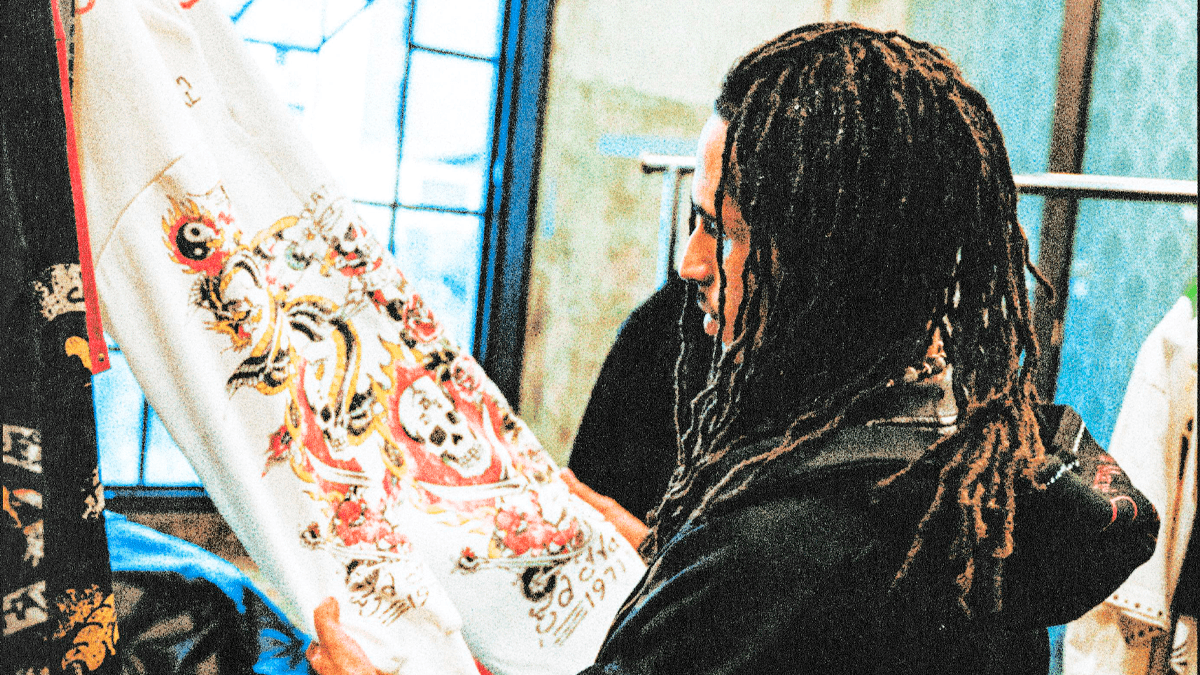The precursor of graffiti in Brazil: Alex Vallauri
Born in Ethiopia in 1949, and of Italian nationality, artist Alex Vallauri came to São Paulo in the mid-60s. Despite his premature death at the age of 37, Vallauri is one of the exponents of the so-called Generation 80. He used various mediums to display his art, in addition to the walls and surfaces of the city. His drawings were simple and direct amid the urban chaos, facilitating the understanding of the message.
The artist realized that art could only be truly understood if the author also cared about the desires of the people who saw it. For this reason, he replaced traditional techniques, which he executed only within his studio, and transformed the city walls into his new home - with large matrices, he quietly printed his works. His aspirations were to convey humor, irony, criticism, and the joy of living through his art.
Alex had his initial expressionist phase, but it is in pop art that he finds his main inspiration. In the 70s, he began to create gigantic woodcuts that decorated walls and surfaces. Objects and the human body - or parts of it - are the main themes.


In 1973, he began graffiti. His 'Black Boot' started to appear on the walls of São Paulo.
“Alex Vallauri started with his graffiti in 78, when an enigmatic long boot appeared on the walls of São Paulo. The boot soon received a leg, some black gloves, and ended up becoming the main character of his work, The Queen of Roasted Chicken, one of the stars of the 1985 Biennial, which turned into choreography in 1987”
– Jotabê Medeiros
Just as the pop art artists aimed for the democratization of art, Vallauri also managed, in part, to popularize his creations in Brazil. Initially installed on the walls and surfaces of São Paulo, his works were printed in New York - Soho, Greenwich Village, and Broadway.

In Brazil, he participated in four São Paulo Biennials: 11th (1971), 14th (1977), 16th (1981), and 18th (1985). In the last, he presented the installation 'The Party of the Queen of Roasted Chicken,' a collection of the graffiti he had been working on combined with objects, simulating the environment of a house filled with icons of consumer society. The main character was even portrayed by a friend of Vallauri, actress Claudia Raia, at the time 18 years old and starring in the soap opera Roque Santeiro.
“The Queen is a consumerist person, without criteria. Vallauri's aesthetic proposal reflects the reality of a Brazil that is asserting itself.”
- Claudia Raia
Designer, engraver, painter, and artist, Vallauri was respected in all his artistic activities. Only commercial success was denied to him, which never prevented him from continuing to create art.
Vallauri influenced other artists to occupy the streets of the capital of São Paulo, and the date of his death - March 27, 1987 - is remembered as Graffiti Day in Brazil.
See others like this





